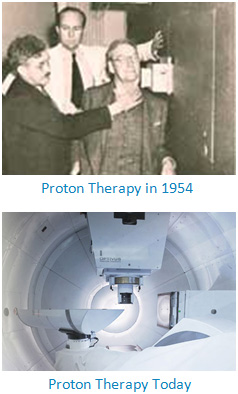Myth #1: Proton therapy is experimental and investigational.
This is perhaps the most common myth about proton therapy. It's also the excuse many health insurers still use to deny coverage for proton therapy for prostate cancer. Of course, the real reason behind the denial is that the initial cost for proton therapy is higher than conventional radiation, but they won’t admit that. So they hide behind the pretense that proton therapy is “experimental” and they have a stated policy of not reimbursing for experimental medical procedures.
If the patient accepts this claim and chooses IMRT or some other form of treatment, then the insurance company wins. If patients fight the denial through the appeals process, and do it smartly, they have a good chance of overturning the denial. Some choose not to go through the appeals process because they are anxious about their diagnosis, and want to get treated sooner rather than later. So they accept defeat and choose another option. We call this “denial by delay” and it works well for many insurers.
So, is proton treatment new, experimental, or investigational? The answer is “no” on all counts.
Here are some facts:
- Proton therapy has been used in the U.S. for more than 50 years.
- Berkeley Radiation Laboratory treated the first patient with protons in 1954.
- Harvard University treated its first patients in 1961.
- Loma Linda University opened the first hospital-based proton treatment center in 1990.
- More than 170,000 patients have been treated with proton therapy.
- There are more than 30 operating proton centers in the U.S. and dozens under construction or in the planning stage.
- Proton therapy was FDA approved for use in the U.S. in 1988.
- Proton therapy is covered in the U.S. by Medicare and many private insurance companies.
- There have been numerous studies and trials that have shown the benefits of proton therapy over conventional radiation methods.
- Renowned medical centers like MD Anderson, Mayo Clinic, and Johns Hopkins have embraced proton technology and have built their own facilities.
 BOB member Jim Landry said it best:
BOB member Jim Landry said it best:
When your insurance company says this treatment is experimental you can point out that it was experimental in 1954. Show them the picture (on the right) from the Berkeley Radiation Laboratory and then tell them how many patients have been treated.
Myth #1: BUSTED!
Any questions? Just ask.
